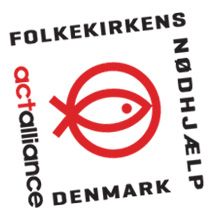Contact Information
oPt: Opposite to Al-Hayat Medical Center
Shu’fat Main Street
East Jerusalem
Phone: +972(0)25825639
Fax: +972(0)25825638
Website: www.danchurchaid.org
Regional Representative:
Mads Frilander
mfri@dca.dk
History
In 1922, a number of people from evangelical churches in 22 European countries met in order to discuss how they could help each other get on their feet again following World War I. Denmark had got off somewhat lightly and in order to support fellow churches established the “Danish National Evangelical Lutheran Church’s Relief Aid for the Evangelical Churches of Europe”.
Following World War II, Europe was in ruins. The international network of churches was re-established, and the Relief Aid joined the Lutheran World Federation as well as the World Council of Churches. DanChurchAid’s support was in particular channelled via the Lutheran World Federation and the World Council of Churches whose humanitarian assistance also included refugees outside Europe: Palestinian refugees in Syria and Lebanon and Chinese refugees in Hong Kong. In 1965 there were 3 billion people in the world – and 2 billion was starving! There are many contributory causes: floods, earthquakes, volcano eruption, draughts – and not least war.
DanChurchAid became experts in loading airplanes with relief aid equipment and get it to the needy in a hurry. In 1967 Denmark experienced its first televised disaster when the province of Biafra tried to break away from Nigeria. In 1972, the relief organisations began to wonder what was needed when a disaster was over in order to prevent another disaster. This became the beginning of DanChurchAid’s work with long-term development work – which was always carried out alongside local partners.
The development work gave rise to a necessary decision: the work should be of a non-political nature – but this decision also led to new dilemmas. Did that mean that one should help the victim as well as his executioner? In 1980 Bishop Desmond Tutu visited Copenhagen. Tutu believed that if you were truly against apartheid, it was necessary to boycott South Africa financially. Otherwise oppression would continue. Bishop Tutu’s direct speech led DanChurchAid to the conclusion that when you look for causes of need and oppression, the answer is often an unpopular and political one. It is unpopular to ask why there is apartheid in South Africa, why there is a debt crisis and Palestinian refugee camps. Nevertheless, it is necessary to ask!
DanChurchAid developed its ‘rights-based approach’ to development work – that is, a work method aimed at enabling the poor to fight for their own universal rights. DanChurchAid opened the new millennium with a decentralization process, moving resources and competencies from the Copenhagen headquarter and out into the world, close to partners and the needy. At the same time, the international ACT collaboration (ACT = Action by Churches Together) was established.
Mission, Vision and Values
DanChurchAid is a faith-based and ecumenical, non-missionary organisation rooted in the Danish National Evangelical Lutheran Church. DanChurchAid carries out its work with the objective, “To help and be advocates of oppressed, neglected and marginalised groups in poor countries and to strengthen their possibilities of a life in dignity.”
Our slogan is, ”We believe in life before death”. This sentence is unique to DanChurchAid, precisely because its words embrace our ethical beliefs and values in working with development and relief aid. “We believe in life before death” is a brief and accurate description of what helps propel DanChurchAid’s work. It is our wish that everyone should have a full and good life – also in Asia, Africa, the Middle East and Latin America.
DanChurchAid’s logo is a fish. It is an old Christian symbol that dates back to the first centuries of the church. The fish originates from the gospels’ story about Jesus who gives the starving something to eat – five loaves of bread and two fish – and at the same time, the letters in the Greek word for fish – IKTYS – are synonymous with the words: Jesus Christ Son of God Saviour. In DanChurchAid’s logo the fish is placed in the middle of a globe – or on a plate – and symbolises life to the world. The logo might resemble a postage stamp which indicates that DanChurchAid is always in motion and sent to the parts of the world where people are in need. The fish is surrounded by “ACT Alliance – Denmark”, which demonstrates that we are a part of the strong, international network that is one of the leading operators in the world when it comes to relief aid and development work.
Overall Work
DanChurchAid’s work is based on cooperation with local partners, who are generally in the best position to know and assess the local context. The partnership model ensures that our emergency and development work effectively targets the poorest and that activities become locally sustainable.
Globally, DanChurchAid is implementing five programmes:
- DCA Mine Action
- HIV and AIDS
- Humanitarian Assistance
- The Right to Food
- Active Citizenship
We implement our own humanitarian mine action programmes and in some cases emergency aid activities, but in most cases we work through local partners who are often members of the ACT Alliance. Ensuring high quality, capacity building and organisational development of local partners is an important cross-cutting component of DCA’s work. DanChurchAid strives to integrate advocacy into all its emergency and development programmes and our advocacy initiatives consist of lobby activities, media action, popular mobilisation, and alliance-building.
- Unexploded ammunition. DCA’s Mine Action Programme in Libya.
- Woman harvesting. DCA’s Right to Food Programme in Malawi.
- Women self-help group. DCA’s Active Citizenship Programme in Bangladesh.



